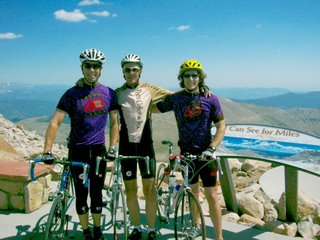All right, at the risk of stepping way, way outside my bounds, I'm going to offer today what seem to me like fairly obvious steps the U.S. could take to change its perceptions in the Middle East, and, more broadly, the Muslim world. I write these in response to an unclassifed briefing I read recently, one given to the Joint Chiefs of Staff of the U.S. military. In this briefing on the Global War on Terrorism (GWOT), the presenter was showing the outspoken, determined, and above all, persistent aims of radical Islam: to establish a global caliphate to recapture and extend the Muslim empire beyond its 17th century borders. Al Qaeda and its associates aim at nothing less than the establishment of Islamic sharia law on a global scale. If you thought Afghanistan under the Taliban was bad, multiply that by a factor of a 1000. The main points of the presentation seem to be to alert the U.S. leadership to this widescale vision of Islamism, their decades-long timetable for implementation, and the need to combat these aims on several fronts: diplomatic and military. To be honest, the presentation was chilling. As with Hitler's
Mein Kampf, these Islamic radicals are signalling well in advance of making a turn; their aspirations are there in bold print for all of us to read, if we're willing.
Anyway, my modest proposal goes like this:
1) I think we've lost the moral edge in the GWOT. If our aspirations as a nation are honorable (and this is debatable, I realize), we've done a very poor job in getting the word out. Somehow our values and aims, which used to be the envy of the world, have slipped from view. In the Middle Eastern perspective, framed by history, their feelings of inferiority as a result, and by the downright manipulation of despotic leaders, many in the Muslim world today see America's intentions in the Middle East solely in terms of the Crusades: we are, to them, at least, a Christian nation which has invaded some of their holiest territories. We are an unwelcome foreign presence, a country whose arrogance, unbridled wealth, immorality and corruption, not to mention overwhelming militarism, are direct threats to their personhood, security, and religion. Our political and military support of Israel (did you know we support Israel to the tune of $15 million a day?!) is seen as blatant endorsement of what, to many in that area, is at best unlawful Zionism and at worst, human injustice. Remember: when Palestinians see armed Israeli military in their territories, they cannot see beyond the "Made in the USA" label on their M-16s, Apache helicoptors, and F-16s. What I propose is a fresh commitment to a peace and propaganda offensive that depicts the best of American ideals and values. I'd love to see us set foot on this peace offensive with tangible steps: first, the appointment of someone to head a philanthropic effort to bolster U.S. support of NGOs (non-governmental organizations) working in areas of human relief in the Middle East. What if we were known more and more for our support of hospitals, clinics, food distribution, schools, water purification, and the financing of micro-enterprise? Right now, the groups supporting these efforts are Hamas and Hezbollah. Why do you think they've won popular support? If we led with compassion and publicized these commitments widely, it might shift Muslim perceptions. We don't need to wait until a tsunami (Indonesia) or an earthquake (Pakistan) strike Muslim countries in order to lend them aid. We can do it now. Money spent in proactive relief efforts and the building of helpful infrastructure would be a good investment and might save us a whole lot more money down the road in military spending.
2) I think we need to strive for a more outspoken (and balanced) foreign policy that gives prominence to our support of justice for all peoples. We should stand against indiscriminate violence, whether fomented by terrorist cells or by elected governments. We need to champion those causes for which we've been known in the past: freedom for all peoples, individual worth, justice, human rights, equal opportunity, mutual respect and religious tolerance. I'm afraid we're seen abroad as hypocrites: by our interrogations which cross the line, Abu Ghraib scandals, abuses at Guantanamo, suspension of rights and freedoms at home--we're becoming known for what we've destroyed recently, not for what we've supported historically.
3) I think we need to initiate and commit ourselves to international conversation. We need to be willing to talk, even to our enemies or those in the "Axis of Evil." Reagan spoke with Gorbachev, after all. Not talking does nothing except alienate and antagonize. One of the areas in which we've shot ourselves in the foot worst of all seems to be our unilateralism. Granted, the UN has been disappointing and ineffective in many cases, but going it alone has only hurt us as a nation recently. We've lost our standing and our role as leader, particularly morally. In all other areas of the global economy, there is a flattening and mutual partnership of leadership and ideas--why not in our case internationally, in terms of diplomacy? Can we be builders of consensus, creating healthy process as well as strategic outcomes?
4) We must call for an international conference of moderate Muslims, both those within our country and those abroad. Moderate Islam is the best way to confront radical Islam. What can we do to foster helpful dialog and problem-solving here? Symbolic gestures (like Pope Benedict's trip to Turkey right now) need to be multiplied. Can we reach out a hand of friendship to moderate Muslims everywhere and look for points of common concern and endeavor? Can we make a long-term commitment to such helpful dialog, beginning with listening and empathy?
5) We need to do a much, much better job publicizing the friendly, helpful side of the U.S. military abroad. Can we lead not only with our military technology, but with personal diplomacy--of our soldiers assisting civilians in need? Wouldn't it be interesting if the nightly news (and I'm not talking about Fox) highlighted daily acts of compassion by U.S. military (and not just body counts)?!
So there you have it: a modest proposal for Mideast Peace. I think a lot of these suggestions could begin in the Palestinian territories, honestly. In the last few days, Israel's Ehud Olmert seems to want to move quickly toward a two-state solution and with Condoleeza Rice's aggressive support (and most importantly, with the Palestinian leadership's agreement), we could see some positive things unfold. If we can get in the mix and support both the cause of the Palestinian as well as the Israeli, this could ripple out into the greater Arab world with favorable consequences.
Naturally, it will take a while to undo much suspicion and hostility. But couldn't these steps lead in the right direction?
Am I preachin' or just meddlin'? Let me hear your thoughts!

















